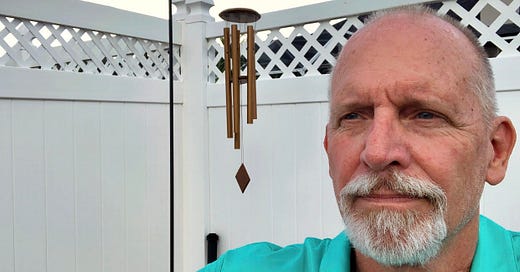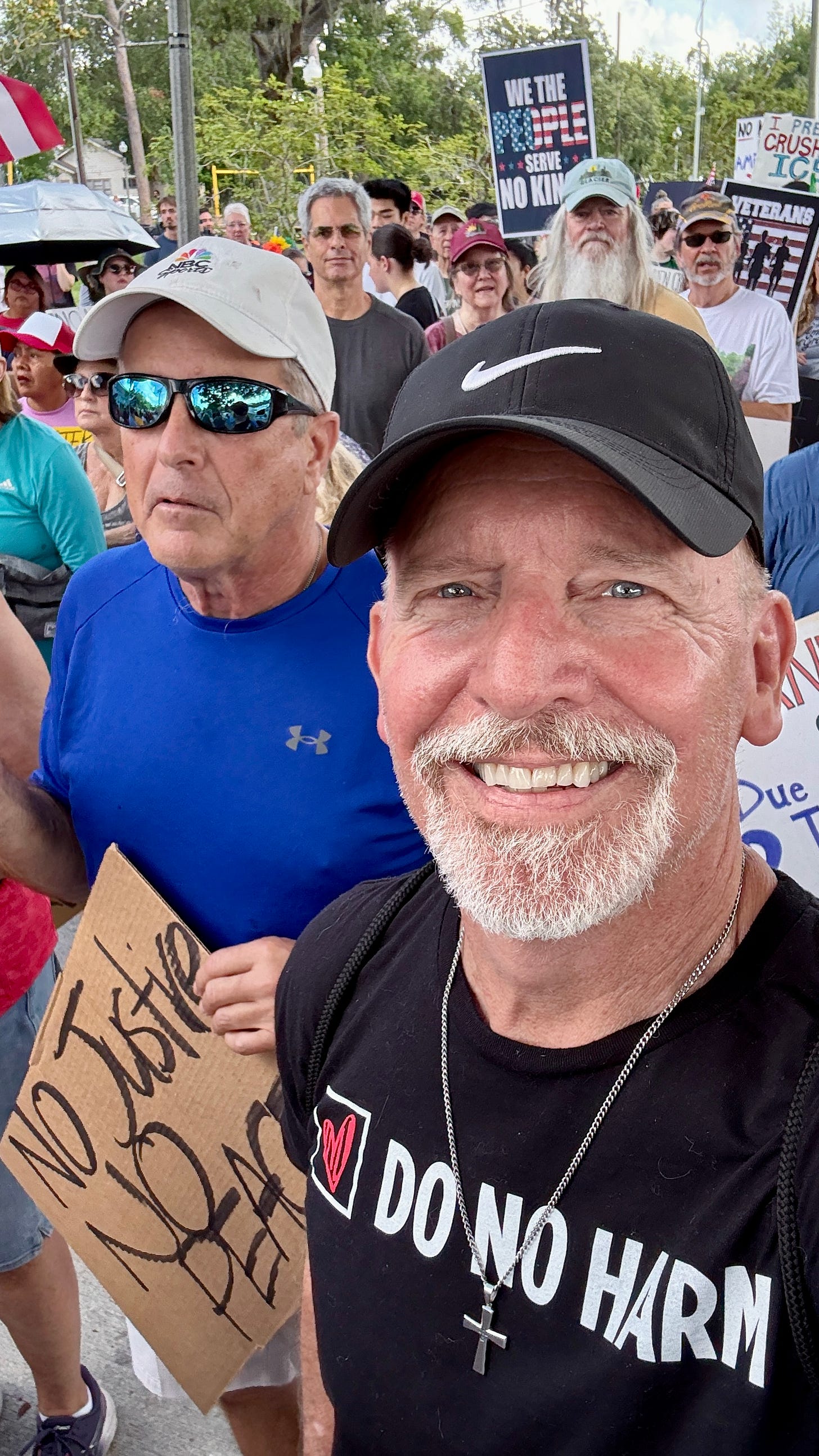It started innocently enough—a Facebook post sharing why I actively participated in “No Kings” day. Just my take on a current issue. But sometimes the smallest stones create the biggest ripples.
Within minutes, the comments started flowing in. Some friends were supportive, hitting the like button or adding encouraging words. Others... well, let's just say they had very different opinions. And some of those opinions felt like they were aimed directly at me.
When Friends Become Critics
Here's what stopped me in my tracks: two of the challenging comments came from people I genuinely care about. Not internet strangers I could easily brush off, but real friends. People who know my family, who understand the ups and downs of my life because they've been there for some of it.
You know that feeling when someone you trust says something that catches you completely off guard? That sinking sensation in your stomach when you realize a conversation has taken a turn you didn't see coming? That was me sitting at the kitchen table, staring at my phone screen.
These were friends who'd sat across from me at church, talking through the real challenges of parenting kids with special needs. People who'd shown up during difficult seasons, who'd celebrated the good times with me.
The Moment of Choice
My first instinct was pure defense mode. You know the drill—that rush of heat in your chest, the immediate mental drafting of the perfect comeback that would set the record straight. I started typing a response. Deleted it. Started again. Deleted that too.
Then a quote I had read two weeks prior came back to me: "When political identity becomes the lens through which we view life, it can warp how we see each other.”
Sitting there in the glow of my phone screen, I realized I was at a crossroads. I could dig in, defend my position, and let this disagreement potentially damage friendships I valued. Or I could try something different.
"When political identity becomes the lens through which we view life, it can warp how we see each other.”
The Radical Choice to Actually Talk
Instead of letting political differences drive wedges between us, the three of us did something that feels almost revolutionary in today's climate: we had an actual conversation. Not a debate. Not an argument. A conversation.
We started by acknowledging what we share. We attend the same church and have served together in the same ministry. We've supported each other through struggles that only people in similar situations truly understand. We've cheered each other on during difficult seasons of life.
Our different political views hadn't changed any of that history.
Setting New Ground Rules
From that conversation came something beautiful: a mutual agreement about how we'd handle future disagreements on social media. We decided that when we engage with each other's posts—especially the controversial ones—we'd do it with respect, thoughtfulness, and always with our friendship as the foundation.
This doesn't mean we pretend to agree on everything. We don't. But it means we've chosen to prioritize our relationship over the temporary satisfaction of scoring points in an online debate.
Why This Matters More Than You Think
Here's what I've learned: having friends who see the world differently isn't a weakness—it's actually a strength. These friendships challenge me to think more deeply about my own beliefs, to consider perspectives I might not encounter otherwise, and to hold my convictions with both confidence and humility.
When we let political identity become our primary filter for relationships, we lose something valuable. We miss out on learning from people whose life experiences have shaped different viewpoints. We rob ourselves of the opportunity to model for others what it looks like to maintain meaningful connections across ideological differences.
The Bigger Picture
We're living in a time when it's easier than ever to surround ourselves with people who think exactly like we do. Social media algorithms feed us content that confirms what we already believe. We can choose news sources that align with our worldview and avoid challenging perspectives entirely.
But real growth happens in the spaces between certainty and doubt, in conversations with people who make us think harder about why we believe what we believe. And some of the most meaningful relationships are built on mutual respect despite fundamental differences.
A Challenge for You
As you navigate your own relationships—whether they're with family members who vote differently, classmates who have different values, or friends who see current events through different lenses—consider this: What if disagreement doesn't have to mean disconnection?
What if you could engage with different viewpoints without losing your own convictions? What if you could ask genuine questions instead of making assumptions? What if you could listen to understand rather than just waiting for your turn to speak?
This doesn't mean abandoning your principles or pretending that all opinions are equally valid. Some issues matter deeply, and standing up for what's right is important. But it does mean approaching these conversations from a place of curiosity rather than combat.
“What if disagreements don’t have to mean disconnection?”
The Choice Is Yours
Every time you encounter a viewpoint that challenges your own, you have a choice. You can build walls or bridges. You can seek to understand or to defeat. You can see the person behind the opinion or just the opinion itself.
The relationships you build now—the ones that can weather disagreement and grow stronger through honest conversation—these are the friendships that will sustain you through all the changes life brings. They're worth fighting for, even when (especially when) they require you to fight your first instincts.
So here's my encouragement: Don't let politics rob you of meaningful relationships. Don't let the loudest voices in our culture convince you that you can only be friends with people who agree with you on everything.
The world needs more people who can disagree well. Maybe it starts with you.
Be a blessing.
Mike






I am so glad you 3 achieved the outcome here. We all can learn from this example. I can still stand up for convictions while standing with my family and friends rights to stand up for theirs. 💕🙏
What a valuable lesson, Mike! Our identity is in Christ as brothers and sisters ✝️ Thank you for sharing!